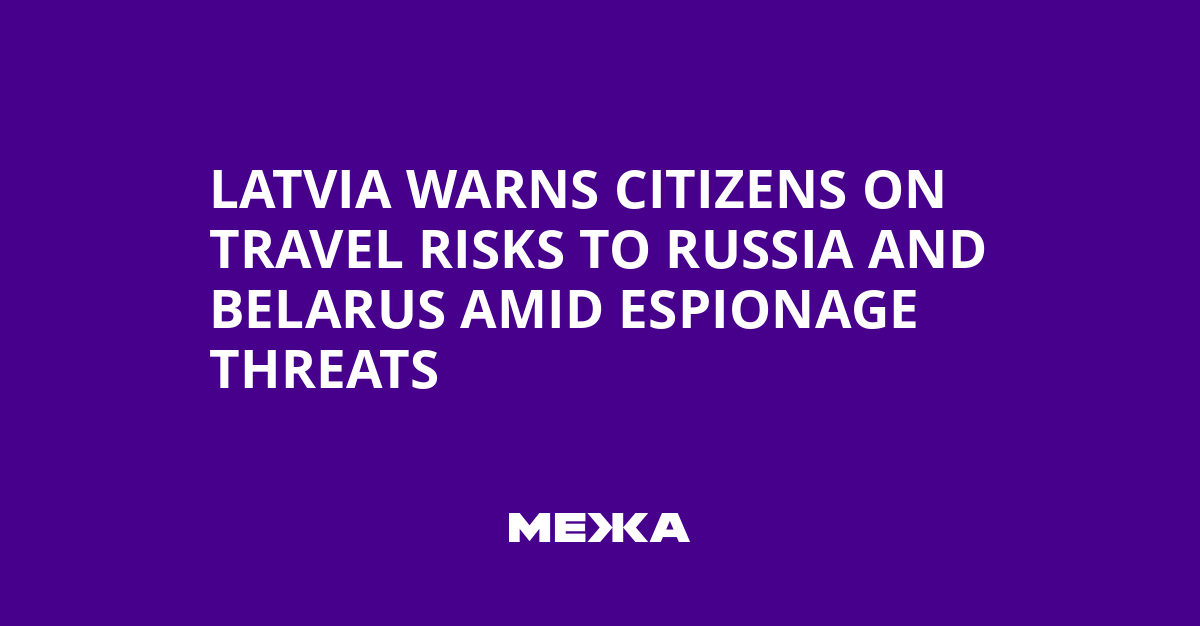The Latvian State Security Service has urged citizens to refrain from traveling to Russia and Belarus during the summer holidays due to high risks associated with intelligence activities, recruitment, and provocations. This information was published by the Delfi outlet.
The agency notes that Russian and Belarusian security services actively exploit opportunities to interrogate and recruit foreigners on their territory, where they enjoy “broad freedom of action.” They use aggressive and illegal pressure tactics to force cooperation.
“The service emphasizes that the ability of Latvian institutions to assist their citizens who find themselves in difficult situations in these countries is extremely limited.”
The categories of individuals at increased risk of recruitment include:
officials of state and local government bodies;
law enforcement officers and employees with access to information related to the National Armed Forces or NATO forces;
representatives of strategically important enterprises, as well as those involved in providing assistance to Ukraine.
“Additionally, Russian security services consider Latvian citizens who need to travel regularly to Russia – due to work, family ties, property, and other circumstances – as convenient targets. These connections can be used as leverage,” the Latvian State Security Service notes.
If travel cannot be avoided, the service recommends not taking a mobile phone, especially if it contains work-related or confidential information, as data may be copied at checkpoints or the device infected with spyware.
They also advise using a simple phone with a prepaid SIM card that can be easily discarded after returning, and avoiding bringing laptops, USB drives, and other similar devices.
Recall that on June 19, the Latvian Saeima passed the law “On Restricting Transactions That Threaten National Security,” which prohibits citizens of Russia and Belarus from acquiring real estate in the country.
This ban applies to both individuals – citizens of the Russian Federation and Belarus – and legal entities registered in these countries. The restriction only covers new transactions concluded after the law came into effect, while previously acquired real estate can be retained by citizens of these countries.
